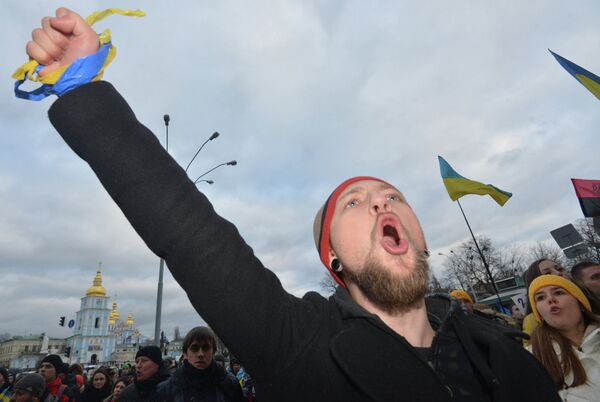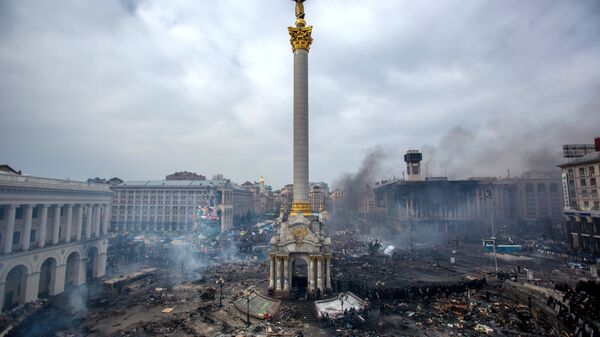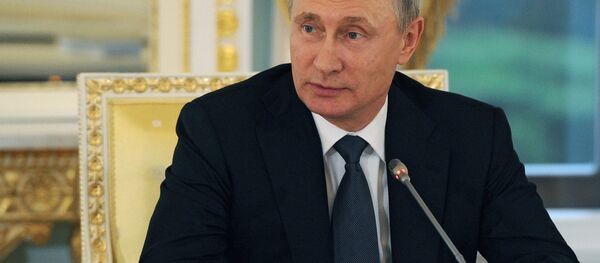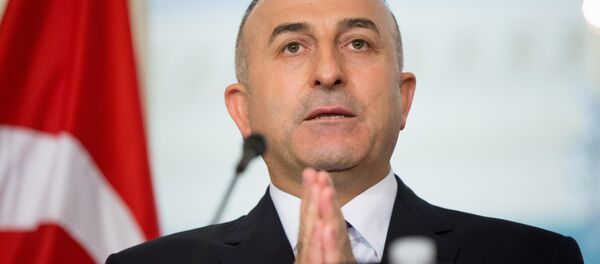While EU-Ukrainian integration has been the leitmotif of Kiev's political agenda in the years following the 2014 February coup in Kiev — also known as the "Euromaidan revolution" — the UK Brexit vote has thrown Ukraine's aspirations and the future of the Poroshenko administration into question.
"In the years since the Euromaidan uprising, political and economic integration with the European Union have become a cornerstone of the administration led by Ukrainian President Petro Poroshenko and Prime Minister Volodymyr Groysman… Now, the uncertainty created by the United Kingdom's vote to leave the European Union has thrown Ukraine's future in the bloc — and the legitimacy of the government in Kiev — into doubt," Strategic Forecasting Inc. (Stratfor) global intelligence firm warns.
On July, 1, following the Brexit vote, Volodymyr Groysman told German outlets of the Funke media group that he was confident that Ukraine would join the EU within the next ten years.
"We are going the European way and that means for us: freedom, human rights and a strong economy," Groysman stated as quoted by Politico.eu.
"Still, this is likely wishful thinking on the part of the Ukrainian government," Stratfor stresses commenting on Groysman's remark.
The intelligence firm called attention to the fact that the trouble started brewing even before the historic British referendum; the EU's ongoing economic and refugee crises have made Brussels reluctant to accept new bids for membership.
"In early June, it [the EU] postponed granting Ukrainian citizens visa-free travel privileges. The EU enlargement commissioner recently said he expected the visa waiver to be granted in October, but the current upheaval in the bloc puts the agreement at risk of further delay," Stratfor underscores.
So far, there is a real possibility that anti-Russian sanctions would be either eased or lifted at the next vote — as early as in the beginning of 2017, Stratfor suggests.
Predictably, such a scenario does not fit into Kiev's plan.

To complicate matters further, Brexit could trigger a domino effect within the bloc resulting in the EU's fragmentation.
"Now the catastrophic scenario that many feared has materialized, making the disintegration of the EU practically irreversible," US billionaire George Soros wrote in his opinion piece for Project Syndicate on June 25.
In the event of the bloc's dissolution the very idea of the "Euromaidan revolution" would be compromised.
Unsurprisingly, the ongoing developments in the EU sparked deep concerns among the Ukrainian politicians.
"Joining the EU is a promise made by every single Ukrainian politician. It's something people on the Maidan sacrificed their lives for, but now it runs counter to the recent developments in Europe. As a consequence, European integration opponents may grow stronger in Ukraine, and start saying: 'Why bother joining a union that is collapsing anyway?'," Alex Ryabchyn, a member the Batkivshchyna Party, wrote in his article for Kyiv Post on July 6.
Stratfor's report notes, that if the Brexit results in the EU unraveling, Ukraine could change the course it following since the Euromaidan uprising.
"Though the country is unlikely to return to a strategic alliance with Russia… the political pressure on Kiev would rise, leaving Ukraine increasingly vulnerable," Stratfor concludes.




